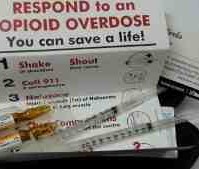
10 things you should do before filling a prescription that could save your life
10 things you should do before filling a prescription
Medicine can be good for you. We all know that. Whether medications are used to treat pain, or to control and alleviate symptoms, they can make you feel better. But you shouldn’t trust your doctor blindly. There are 10 things you should do before filling a prescription that could save your life. Literally.
10 things you should do before filling a prescription that could save your life
When your doctor prescribes medication for you, you should:
1.) Ask what the serious side effects are.
Many doctors will provide the standard line that the benefits of the drug outweigh the side effects, and that the side effects only affect such a small percentage of the population. Let the doctor know that you want to know the most common serious side effects, and will conduct your own research, before deciding if you will take the drug.
2.) Ask if there are any other alternatives and write down the names of the drugs.
It is a sad, but true, fact that many pharmaceutical companies actively court the physicians to promote their drugs. Even if the doctor is not inherently “bad”, they may have had the name of a particular drug practically stuffed down their throat and will automatically recommend that drug, which is exactly what the pharmaceutical companies want.
3.) If you smoke or drink regularly, remind the doctor of that and ask again if, in his opinion, the prescribed medication is safe.
Our health system is in shambles and doctors are completely overworked so they can easily forget if you drink or smoke.
4.) If you are using other medications, let your doctor know what medications you are on and ask again if it is safe.
Patients often have more than one doctor and forget to tell their doctor about other medications. You should always have a written list of any medications you are taking and should carry the list with you.
5.) Ask your doctor if the medication is a pill, tablet, capsule or patch.
This is very important because sometimes a doctor can make a mistake or even the pharmacy filling the prescription can make an error.
If, for example, your doctor tells you that it is a time-release capsule and you research it and find that it is a tablet, you will want to contact your doctor before taking the medication. It may be a generic drug, which usually work OK, but if it is a completely different formulation, for example a tablet rather than a capsule, it may not.
6.) Bring your formulary listing with you and show it to your doctor.
Your formulary listing can save you a lot of money. It is simply a list of medications that your insurance company will pay for. You can find a formulary listing for your insurance company online or you can call them and ask them to send you one. Maybe.
The company that I dealt with told me it is online and it is BUT it is in a format that I could not download. I had to copy all of the drug names into an excel spreadsheet and sort it
Rather than doctors prescribing the medication that they think is best, based on their expertise, business people with no medical experience are deciding what drugs they will pay for. Many times the patient suffers because of this,
If you bring the list with you and the drug your doctor prescribes is not on the list, you will have to pay the cost out-of-pocket. Hand your physician the list and have him or her look at it. Many times, they will see a drug on the list that will treat your condition.
7.) Ask your doctor if the medication is addictive and, if it is, how to wean yourself off.
This is especially important if you are prescribed a medication for 30 days or more.
Hydrocodone, a widely prescribed drug, is addictive. Do you really have to take that drug? You might, but you need to know, and are entitled to know, the risks. Even if the drug prescribed has few side effects, addiction may not be something you wish to wrestle with. Ask for another alternative.
Here’s an example. A family member had a very bad case of shingles and had lingering pain. He was prescribed Hydrocodone and Gabapentin. After reading about how addictive Hydrocodone can be, even after a short time, he decided to not take it.
Gabapentin is an anti-epileptic drug that has mixed reviews as to its effectiveness. There was a study showing that a healthy patient that had no history of seizures had a seizure after stopping Gabapentin.
He took Gabapentin for 30 days and asked, both the physician and pharmacist, about a weaning schedule and both said there was no weaning schedule. Based on what we read, we saw many people that had addiction issues with Gabapentin, and needed to wean themselves off, so he was fortunate even after stopping it abruptly.
8.) Make sure you know how to spell the name of the drug and write it down.
After your doctor spends his two minutes with you, he is on the run, since there are usually 8 other people waiting in rooms with appointments at the same time as you. Once he’s gone, that’s it – so you have to get this information before he runs off.
9.) Tell the doctor that you are going to research the RX first and ask him for contact info.
He might not like it or he may surprise you and be very receptive that you are involved in your own care. You want your doctor to understand that you are going to research the drug first and that, in case the medication is not acceptable to you, you need to know who to call.
Don’t fall for the “just call my office”. You’ll get the runaround for days or will be told to come back in for yet another appointment. Get a name!
Before you leave the office, try to meet that person, explain what you are doing and why you may be calling them and ask them to note it in your file.
10.) Conduct research
It’s fairly easy to obtain the information you need online. You should also talk to your pharmacist. Use reputable sources online and google to find out information so that you can make the decision to either take the medication, or to get in touch with the contact person at your doctor’s office and request another drug.
The bottom line is that is is very important for you to be involved in your medical care and the 10 things you should do before filling a prescription that could save your life is a great starting point.
Remember to ask questions and nicely demand answers and do not settle for less. You’re entitled to it and, more importantly, your health depends on it.
Related articles








 Follow
Follow



